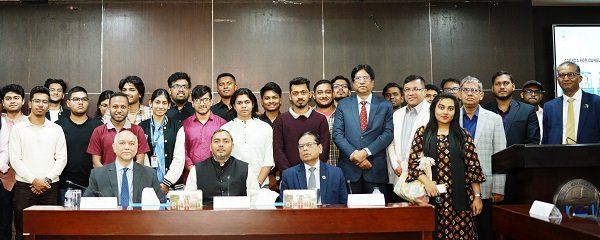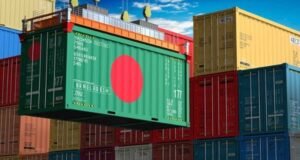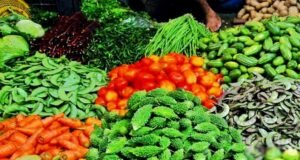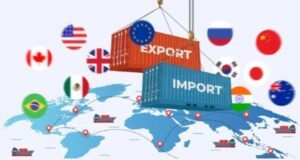
”Bangladesh is moving forward to become a developed country by 2041. To accelerate the trajectory of development, trade and commerce play a pivotal role. In the upcoming 13th WTO Ministerial Conference (MC) at Abu Dhabi we will try to negotiate to get the best outcomes for our country as we are graduating from LDC in 2026”, said Mr Ahasanul Islam (Titu) MP, the State Minister of Ministry of Commerce, Government of the People’s Republic of Bangladesh.
He spoke as the chief guest at a national seminar jointly organized by the South Asian Institute of Policy and Governance (SIPG) and the School of Business Economics (SBE) at North South University (NSU) on February 17, 2024, according to a press release.
The title of the seminar was ‘Shaping the future of trade: Agenda for Bangladesh at the 13th WTO Ministerial Conference’. The seminar aimed to identify and discuss the potential benefits of Bangladesh in international trade and strategies to mitigate the challenges ahead in the context of the 13th Ministerial Conference. Mr. Javed Muneer Ahmad, Chairman of the Board of Trustees of North South University chaired the session. The event was moderated by Professor Sk. Tawfique M. Haque, Dean of SHSS, and NSU & Director of SIPG.
Mr. Ahasanul Islam (Titu), MP also said, “Our economic achievements are significant in terms of International trade and infrastructure development. Now our focus is on creating more employment opportunities as one of our main strengths is human resources and creating employment was a priority in our election manifesto.”
He also spoke about diversifying the export products and materializing the ‘One Village, One Product’, a project to foster the economic growth of Bangladesh. He also hopes that Bangladesh will sign various trade agreements like PTA with ASEAN countries and CEPA with India and Japan soon.
The keynote presentation was given by Professor Helal Ahammad, Dean, School of Business & Economics and Director, Economics Research Platform. He said, while WTO must remain the ‘main’ game, Bangladesh must double down its efforts on bilateral agreements. ”Bangladesh must build in-house capability for forging tough trade-negotiations, build data & analytical capabilities and magnify institutional collaborations”, he added.
Professor Mustafizur Rahman, Distinguished Fellow of CPD said, that WTO countries don’t get what they deserve, but rather what they negotiate. So it is essential for Bangladesh to get in the green room discussions that is where most of the negotiations will be done.
Dr. Mustafa Abid Khan, Former Member, of Bangladesh Trade and Tariff Commission said, ”WTO is very important for us as they created the rules based market policy and dispute settlement mechanism. Through WTO we got duty free access of our various products, and it was beneficial for us.”
Professor Shahidul Haque of SIPG, NSU discussed reforming the WTO. He said that countries should continue to demand structural reform of WTO for ensuring transparency and reaffirming fundamental principles of WTO on which it was formed. ‘There should be a clear separation of politics and human rights from the trade issues.
Dr. Md. Jafar Uddin, CEO of Bangladesh Foreign Trade Institute said, ”We should focus on export led growth strategy and strengthen our trade diplomacy capacity to foster our economic development.”
As the session chair, Mr. Javed Muneer stated that the trade dialogues today have become more complex. Remittance and labor movements are now important aspects. Richer nations are again reshoring their industries and it is changing the global architecture of trade. In this context Bangladesh needs good negotiators and skilled lawyers for combating the hurdles of future trade and dispute resolution.
 Weekly Bangla Mirror | Bangla Mirror, Bangladeshi news in UK, bangla mirror news
Weekly Bangla Mirror | Bangla Mirror, Bangladeshi news in UK, bangla mirror news







